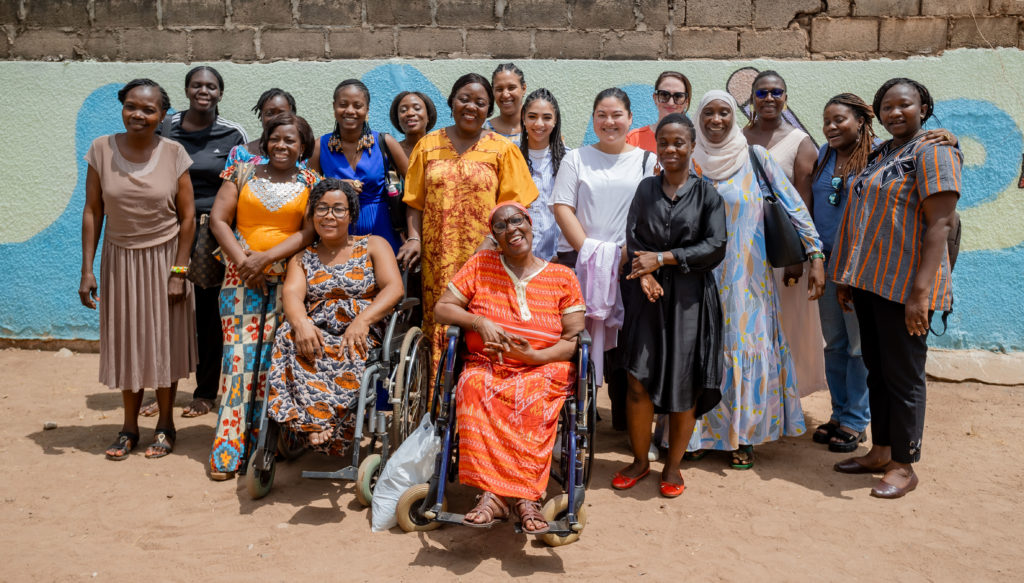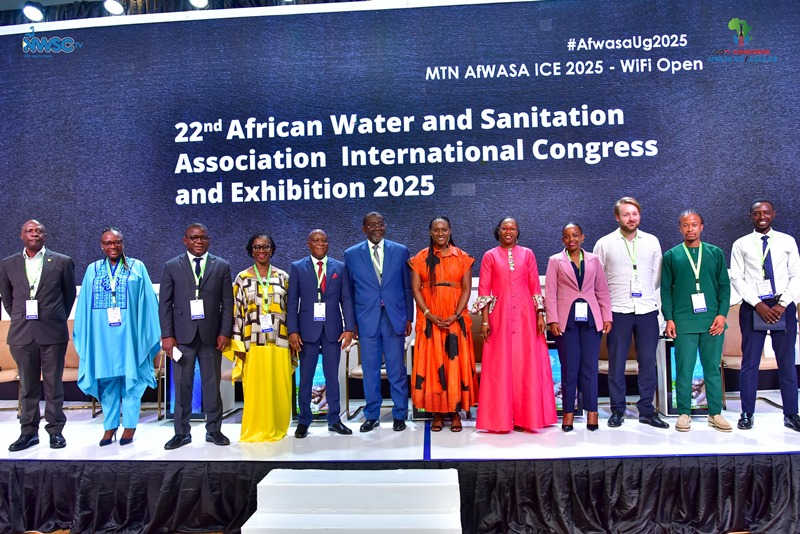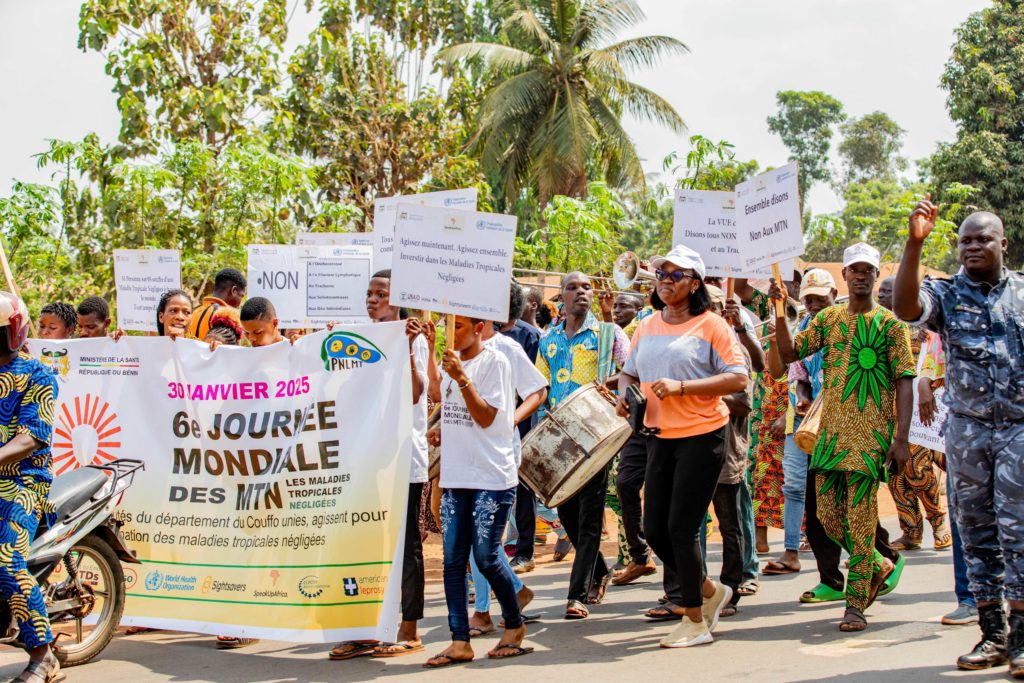Dr. Clement Meseko: Vaccine is a Great Miracle Created by God

Nigeria’s frontline vaccine researcher, Dr. Clement Meseko of the National Veterinary Research Institute speaks on the process of vaccine production, the safety of the COVID-19 vaccine and the role of Nigerian scientists in the development of the COVID-19 vaccine. In this interview, he debunked various myths and misconceptions about the vaccines and tells why vaccines are God’s miracle to save humans. Chiamaka Ozulumba brings excerpts
As a scientist in the area of vaccines research and development, can you share your journey into the field of vaccinology?
Interestingly, before I became a researcher, which is like 18years down the line, I had worked before then for five years, marketing and distributing veterinary anti-infectives and vaccines to stockholders, what my job was then was the delivery of animal health product, including drug and vaccines to livestock owners, to animals both for domestic and pets. I had been someone that has marketed or someone that promotes and markets vaccines because of the advantage. You know in therapeutics in the life’s science in our attempt to find solutions to infectious diseases, two major things historically has been very effective, one is chemotherapeutic, that was the advent of antibiotics, so you know that before the advent of antibiotics, people get sick, people get infections and there were no cure until that magic bullet was discovered.
Another major one that has ever happened to mankind is the development of vaccines. You know what vaccine is? Vaccine is a product of what is causing the disease. For instance if I am developing a vaccine now, I use the very virus, the very bacteria, the very agent that is responsible for the infection to develop my vaccine. So, the kind of method is that the agent that is causing the disease in its infectious state can cause a lot of havoc, so you will get that particular virus and you inactive it, it means you render it incapable of causing infection, however, it is still like an antigen that the body will still recognise, so the body recognize it and produce antibodies against it, so that peradventure you are exposed to a similar infection in the future, the antibodies that has been produced in response to the stimulation by the ineffectious agents is there to prevent the infection from taking place. So, while I was marketing vaccines and drugs for five years, I saw that there was a lot of disease maladies, what my next inclination was to get involved in the research aspect of the vaccines and drugs that I am used to marketing, that was how I joined the research institute, and for the last 18 years I have been involved in research into virology, vaccinology and finding solutions to problems of infectious diseases.
So to me, Vaccine is one great miracle that God has provided, unfortunately because of ignorance and the need to get more of this knowledge across to the public so that they will appreciate that vaccine is a very potent tool that God has given us so that we can be free from a lot of maladies.
Aside the COVID-19 Vaccines, have you been involved in any particular research on vaccines?
As you probably would have found out from my profile, I am veterinarian before I became a virologist. And being a virologist, I have a kind of diversity in the areas of vaccination, there has been a lot of vaccines that has been produced in this country before it was stopped, like the human vaccine, the yellow fever vaccine, but at the moment the only vaccines that are been produced in Nigeria are vaccines that are targeted for animal health, so most of my research had been on veterinary vaccines but it will interest you to know that about 25 veterinary vaccines have been produced in Nigeria, the one that you can relate to is the rabies vaccine, rabies is the kind of disease that affect animal and human, the major animal carrier of rabies in Nigeria is dog, occasionally we find it in bats, but the one we are most exposed to in Nigeria is dog, it is often said that 99% of human exposure to rabies is due to dog bite, so we have this virus in dog and the dog also contract it from other sources, it could be from wild life, it could be from rodents, it could be from other mammals in the wild, and so when it gets into the dog the dog gets sick, and you hear about mad dog, that is how severe the infection is, the dog becomes mad until it dies, so the same thing happens if the dog bites the human being, the human being becomes so hyperactive and express a lot of nervous disorder and eventually dies, so it is a fatal disease that kills as it gets into the host, it kills the dog, it kills the human.
The good news is that there is a vaccine that has been developed for rabies, so if you have your dog vaccinated, even when this dog contracts rabies it will not affect the dog and if the dog is protected, the likelihood of the dog transmitting to human is nill and besides the dog rabies vaccines that is used in Nigeria, we at the National Veterinary Institute in Nigeria developed the rabies vaccines, we produce it, it is being used, and it is fully commercialised. But there are other vaccines for human rabies, pre and post exposure human rabies vaccines, we don’t have that in Nigeria, but if a human being is immunised just the same way the dog is immunised, the human will be protected. So what better advantage could we have, you have a disease that is almost 100 per cent fatal so it means if anybody is bitten by a rabies dog, the person will most likely die but if the person is vaccinated, the person stands a chance of surviving. So we produce a lot of veterinary related vaccines in Nigeria, it is the same process for any other vaccine development, it is the same principles and the same outcome, it is just the host that differs.
Let’s talk about the COVID-19 Vaccines, were you involved in any way in this particular vaccine?
Since the onset of COVID 19, scientists have been very busy, at the government level, federal ministry of health, the Nigeria Centre for Disease Control (NCDC), human right agencies and many other agencies; we formed a lot of consortium, the National COVID 19 Research Consortium, so within this consortium there are a lot of thematic areas, knowing that COVID 19 emerged from animal, there are groups that are trying to find out the relationship with animals, there are groups that are involved in attempt to find a cure and case management, there are groups that are involved with the epidemiology of COVID 19, there are groups concerned with development of vaccines, many groups are still being formed, interestingly, I am part of some of these groups, so you know the way we work in science, if you have an idea, you are asked to write a proposal about what you want to do and how you want to do it and what it will take for you to do it, so if your proposal is found worthy, then you can be given a grant, so we have submitted a lot of proposal as individuals and collectively.
So we have recently also formed a consortium between some agencies like the Usman Danfodio University, the National Institute for Medical Research and the Nigeria Veterinary Research Institute, we are forming different kinds of coalition and writing for grants, seeking for grants, because vaccine development is not a small business, it requires a lot of financing, so if any of these grant is awarded we hope that we can move to the next stage. Some of these consortiums like to take advantage of existing infrastructure; there are also newer technologies for vaccines development. In the old ways of making vaccines you take a whole organism that is responsible for the disease, you inactive it, so you have a whole virus that is a vaccine, over time you don’t need the whole virus, these days you take a minor portion of the virus and now look for the vector, essentially that was how the AstraZeneca vaccine was developed, they just took a portion of COVID-19 and inserted it into another virus that is not pathogenic, that is mild, that will not cause disease in human, that can replicate, in the cause of its replication it is also replicating the antigen of the COVID-19, so all these technologies are available and researchers in Nigeria are capable of all these explorations and another advantage that we have is that at the National Veterinary Research Institute, that we have produced 25 vaccines in the last 100 years, we have infrastructure in place that can scale up vaccine production, so if the technology is developed today and we are looking for where scaling up of production can be done, we have places in Nigeria that can be enhance and can readily fit into the process, because for how long can we depend on importation of vaccines, imagine the kind of population that we have, so we have vaccinated about 1 million persons in Nigeria, they have taken the first dose, they will still need the second dose, so we are doing like less than 0.5% of the population, so there is that need to develop local capacities so a lot of research is going on and a lot of proposals have been written. We are hoping that some of these proposals can be favorably received and grants will be awarded and allow Nigerian scientists to step up and see what they can do in respect to COVID-19 research and development.
Is your coalition targeting the Central Bank of Nigeria fund on COVID-19 research, and how is your coalition organising in developing Africa’s own vaccine?
As I mentioned earlier, apart from CBN, we have grants opportunities from TETFUND, private sectors like Dangote Groups and others, they are also organising to see how they can contribute, so we are also channeling some of the grant proposals to them to see how they can fund some of these things; concept notes have been developed, proposals have been written. So, the Nigeria COVID-19 Research Coalition, we have actually designed for immediate response on how scientists can have themselves organized, the group have been organised along several thematic areas of research, some of which also involves vaccine research and development, there are those who are charged with responsibility of resource mobilisation, another arm is also responsible for managing the scientific world, they handle the proposals that other scientists write, they are then subjected to peer review, amendment will be made, it will then be subjected to external review, then it will now be passed to the resource mobilisation who will now seek for organizations including government and non-governmental who can fund the research so that is the goal, it is just that some process can be slow, but I can assure you that such is ongoing.
What in specific terms can Nigeria or African government do to support homegrown scientists in the development and production of vaccines?
Most times in the past when there is outbreak of a new disease it goes on for a long time before the research commence, first of all you try to understand the disease itself, the pathogenicity, the epidemiology and all the biological characteristics, before you now think of isolating the pathogens and seeking to develop a vaccine and when the vaccine is developed, it goes through series of testing, starting from animal testing, clinical trials; phase 1, phase 2, phase 3, all these takes a long time. So at the end of the day, the vaccines take about 10 to 20 years before they are developed but the interesting thing with the COVID-19 is that the time for developing the vaccine is short, which is one of the reasons why people are skeptical about the vaccine which naturally should not be because technology have improved over time. Technological advancement has sped up discovery and development, one advantage too is that some of the companies that developed the vaccines have been used to vaccines for influenza, influenza is another kind of respiratory virus that has similarities with COVID-19.
As a matter of fact those of us in the sciences, virologists, we have always known that a pandemic will soon emerge, when we were marking the 100 years of the Spanish flu, we had suspected that a pandemic will soon emerge, all the factors were there, and for me who had always done research on influenza, I had thought that the next pandemic will emerge from influenza, now it didn’t happen with influenza, it happened with corona virus, so we were not surprised that a pandemic emerged. So those countries and those agencies already have platform for producing influenza vaccine, the infrastructure, capacity and expertise are on-ground, that is what is lacking in Nigeria, research have been poorly developed, our infrastructure has not been maintained and so when it comes to the need for vaccine development our efforts cannot be as rapid as we have it in the developed countries because their infrastructure is there, it is not that we cannot develop vaccines of these magnitude, we can, but it wouldn’t be fast.
So the lesson is that there is a need to strengthen infrastructure and fund research much more than it is currently been done in the country because problems like COVID-19 may still come in the future, so we must strengthen our institutions, empower our scientists, so that when there is a problem like this they will be up to the task, so eventually we may be able to in-house develop a COVID-19 vaccine but it can’t be as fast as it is done in other advanced countries but of course technology can aid in making it more rapid that we ever expected.
Is the COVID-19 Vaccine safe and potent?
When you have a higher number of population of people being vaccinated, at least 70 per cent of people are protected in the population, the virus will die out or it will have no new host to infect and so there will be a herd immunity and the population will be protected, so the least we want for most of these vaccine is to give a potency of 70 per cent and as far as the whole of the population can be protected up to 70 per cent the chances of COVID 19 spreading within the population is reduced, in terms of such potency, it varies, but so far what they have presented is good enough, there are more studies going on to know how long the antibodies will remain in the body before they will need a booster immunity and science also reviews itself, science does not claim it has found a cure or a solution that cannot be reviewed.
And then in terms of safety, I told you I have taken the vaccine, and a couple of my friends have also taken the vaccines.
Did you react to the dose?
Apart from the pain I had on the injection side for like three days, I didn’t have any other reaction, but some of my friends said they had fever, and nausea feeling, it is nothing unusual from the regular most of the time. It is a function of our body constitution, the way we react is different, and so it is within the range that is considered normal. Even with this vaccine, they have said may be it is not for everybody, probably if you have particular condition you may not have to take the vaccine but in the long run, the idea is that it is safer to take the vaccine than not take the vaccine because most people who take the vaccine will develop antibodies that will be able to restrict infection than people who may not take the vaccine, who I may consider as naïve population at the end of the day they have encounter the virus which may cause calamity.
There seems to be division within the science community; some medics in the US have questioned the COVID-19 vaccine; saying it contains sterile components and may reduce world population, what do you say to that as a scientist and someone who is working on vaccines?
The first thing to say is that it is healthy for scientists to disagree, we don’t all have to agree, that is why we have peer review, science grows by critic, even after your research, you have colleagues who have better ways of doing the research, so it is normal in the science community. So for those who think that there are chips and sterile components in the vaccine, one of the things they have failed to do if they are truly scientists is to show us the data, what research have they done? they can share the data, they can present it and when it comes to peer review, when it is identified that way, even me, I will believe that this component intentionally or not intentionally became part of the vaccine so to rely on theories and hypothesis is not scientific, you have to bring up data, it is the data that speaks.
Now that we have been told to take the vaccine, why must we still continue the social distancing, mask wearing and all other COVID-19 protocols laid out?
I was reading in the news that of all countries in the world, it is Israel that has the highest rate of population that has been vaccinated, so what they did is to lower the use of face mask in the public, so if you are in Israel today you probably will not need to use face mask in the public because more than 70 per cent of their population have been vaccinated and they have also seen in their data that the rate of infection and the rate of death due to COVID 19 has drastically dropped, so until every other country get to that level, we would need to still continue with all the COVID 19 rules, because in Nigeria for instance we have only succeeded in vaccinating a fraction, only a small fraction of the population, even with the first dose, not even the second dose, so we are still a long way far from attaining the 70% herd immunity level that is required.
What is your counsel to the section of the population, especially the faith-based population who are highly suspicious of the vaccine, do you think if the vaccines were developed by Nigerian scientists, there could be a different response?
Maybe, maybe not, it may not be entirely so, ignorance is one of the bane in Nigeria, we are too superstitious in Africa to certain degree, adding to that, the way we practice our faith in terms of what we believe and how religion affect our life also have impact on the decision and our response. So even if the vaccine was developed by Nigerian scientist it will still not change the attitude of some people, But I think we need to do more, we need to get people to understand, particularly within the science community, we need to have a conversation with the public to make them understand what the process is all about, I think if people know more their faith will be strengthened.
Can we say in specific terms, that the COVID -19 vaccine is different in process, in character or activity from the polio vaccine?
Yes it is, the polio vaccine is still like the whole organism kind of vaccine, the whole organism in the sense that you have to isolate the virus, then you deactivate the virus; it can no longer cause disease but it can stimulate antibody production that will be able to neutralize the virus, however there has been so much technological advancement that hastens the process of vaccines production, that was why I said the COVID 19 vaccine is faster in its development. The AstraZeneca vaccine is a vector vaccine, a vector and subjugate vaccine in the sense that it is not the whole organism of corona virus that is taken, it is a portion of the virus that is taken to a vector, another virus that is not pathogenic, that virus can still replicate, that is the process of AstraZeneca, meanwhile there are other higher technology for vaccine production, called the DNA technology and that is what the Pfizer and Modena brand, they went deeper to take more refined aspect of the virus, which is the RNA, the MRNA, so for me if you draw a line from 1 to 10 in terms of refining, then you say the polio vaccine is around 3, the AstraZeneca vaccine is around 7 and then the Pfizer and Modena brand is like 8 to 9 in terms of refinement, so you are taking the finest particle aspect of this organism to make vaccine.
Can you speak to the controversy about the AstraZeneca vaccine, why don’t we have the Pfizer vaccines in Africa; does it have to do with cost?
Yes, it has to do with costs and handling, even the cooling capacity is lacking in Africa, for instance you need an ultra low cooling facility like -80, there are few places in Nigeria for such -80 cooling system, meanwhile the AstraZeneca vaccine can be held for storage at -20, that is the normal refrigerator temperature so it is the handling, so you can imagine if the Pfizer vaccine is brought to Nigeria and you don’t have the facilities to hold it, at the end of the day the whole vaccine will go bad, so it is related to cost and handling capacity.
I want you to categorically speak to the myths that this vaccine has got chips inside to monitor people, and have content that affect reproduction; can you say these vaccines are safe?
To assure you about the potency and give you the assurance that the vaccines are safe, I myself have taken the vaccine, the AstraZeneca vaccine because I am among the frontline health workers, in the sense that I am involved in the diagnoses and management of COVID 19, I go to the lab, I handle the virus, so as part of my protection, I have taken the vaccine and then talking of the potency, when the vaccine was developed by the company, Pfizer gave their rate as far as 95 per cent, none of them gave a 100 per cent potency.


